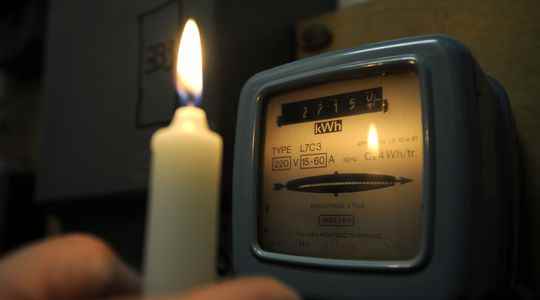She said it on tiptoe, Elisabeth Borne. After many circumlocutions – if all the wrong hypotheses come together, if we don’t make an effort, if Russia goes all the way… – but she ended up saying it. Yes, it is possible that this winter there will be in France power outages in homes. Not a generalized cut, but by slice of two hours maximum and by turning between the various districts. She said it with such caution that no one really imagined what it meant in our daily lives. A little over two years ago, we were plunged into unprecedented confinement, with a ban on going out for more than an hour a day. From now on, we are promised a winter where we will no longer have this resource to which we are so accustomed.
Of course, this is not the first time that we will experience power outages. Regularly, in rural areas, too violent a storm, too heavy a snowstorm gets the better of the electricity network. We remember a particularly vigorous winter in the mid-1980s. In our house in the greater Paris region, we had no more heating, no more lighting, no more hotplates. The three days without power had taken on the appearance of an extraordinary adventure for the children that we were. Our mother cooked on the campingaz that had been lying around in the garage for ages.
It was long, laborious for a vaguely lukewarm result. Our father had brought out an old kerosene lamp that an equally old aunt had given us. The burning wick didn’t illuminate anything but made a nice play of light and shadow on the walls. After 48 hours, we got tired of being sent to bed at 8 p.m. because we couldn’t read or watch TV. And to look like nothing by dint of piling up the layers of clothing to fight temperatures so negative that the branches of the trees bent under the frost.
Not prepared because too used to having everything at hand
Fortunately, everything was quickly back to normal. All that remained of this moment were childhood memories that we recount as a family while looking at old photo albums. Today, would we find the same flavor of adventure? Particularly in urban areas where one is hardly prepared to do without electricity. Who has, in the bottom of his drawers, anything other than birthday candles to face a dark winter evening? Who, apart from camping enthusiasts, has a gas stove to ensure a hot dinner if not a succulent one? Who knows how to do without a computer, a telephone or a freezer? Too accustomed to having everything on hand as long as we have the means, to being able to order what we lack or want, we cannot imagine the lack.
Until recently, power cuts reminded us of countries in difficulty, countries in crisis. Like Lebanon, where no one – and even before the financial deadlock of recent years – imagines renting an apartment without a generator that comes to the rescue of the national electricity company that is regularly at fault. The noise of the diesel engines starting on the ground floor of the buildings, the slight trembling, even the slight interruption, of the light indicate the handover from one to the other. There, they are part of everyday life and do not amuse anyone.
Tuesday night on the show Daily, Élisabeth Borne refused to talk about decline, but this winter that she envisages and that she describes to us in cautious touches is singularly like a step back. No doubt she hopes in this way to make us collectively reasonable in order to avoid the worst. But the last few years under the sign of Covid have shown us that the worst scenario sometimes becomes the most likely. Quick, to your gas stoves, candles and boxes of ravioli!
